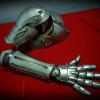Hi guys, I got on bandwagon through Reddit.
I am looking to enhance the liver function. Now, I hope this forum is open to 'new age' stuff but last December
I went to a private doctor who is "one foot in modern medicine, one foot in alternative stuff". Cost some money but
it was 3-hour examination along with fascinating conversation. She used some kind of electromagnetic device and computer
program to scan for issues I am having: poor cognition, acne that does not go away, incredibly poor fat absorption, tiredness, fatigue,
and anxiety. I don't feel horrible but I swear, I am operating at like 30% capacity and am capable of much more.
The method used different frequencies and basically, my liver was in the red zone on the scanner aka nothing good. It was fascinating, because
stuff did not stop there with vagueness. She then went deeper, focusing on liver. The final conclusion was cholestasis of the liver. However, that method
is not perfect because it won't tell you exactly WHY. In some cases, a diagnosis have many alternative causes.
I am a skeptical person. I went through a bunch of frustrations with regular docs. I insisted on blood tests etc. There is a constant problem that shows up
frequently - elevated ALP. That's it. No AST, GGT are abnormal. Just ALP. I have liver tests over a span of 9 months around 4 times. It was in normal range once.
Upper limit is 125 but in all cases it was as follows: 135, 147 and recently 150.
The prescription for me was: rowachol, turmeric, lecithin granules, milk thistle oil etc. I don't know if they helped because I still can't digest fats very well. I still have
same symptoms. However, I was also told that it most likely will be too weak a regimen and it is probably right. I met this woman in a different country and can't go back
easily for further investigations. However, it seems clear. Liver is struggling.
At the same time, I am skeptical of this. My diagnosis was cholestasis caused by mechanical blockage of some sort. I had ultrasounds(multiple places), endoscopy but it
never revealed anything wrong. My gallbladder is clear, there are no deviations in hepatic system.
I searched for other ways to help it and found this forum. Also, strangely Reddit steroids section talks a lot about liver protection because oral steroids really are hepatoxic. People
claim stuff like TUDCA is awesome. My issue is that I wasted ton of money on stuff that never helped me at all. I came to this forum for more targeted approach to my symptoms.
I'd like to add that I train in the gym 6 times a week, I cook all my food and I eat no junk ever. I was also looking to stuff like homemade kefir, sauerraut because maybe fat digestion is impaired due to bad bacteria. But that stuff never aleviated anything after months of use.
Any guidance on this?

























































